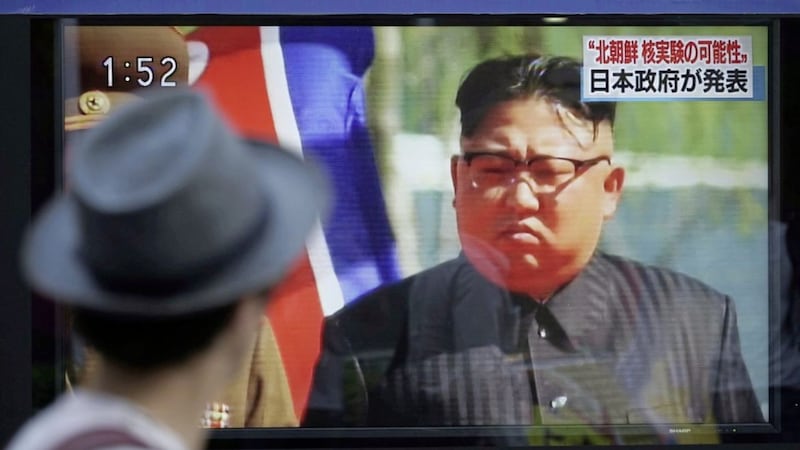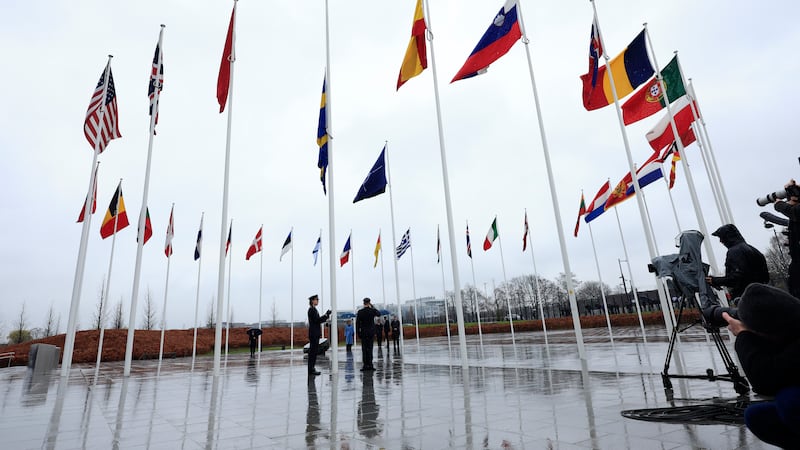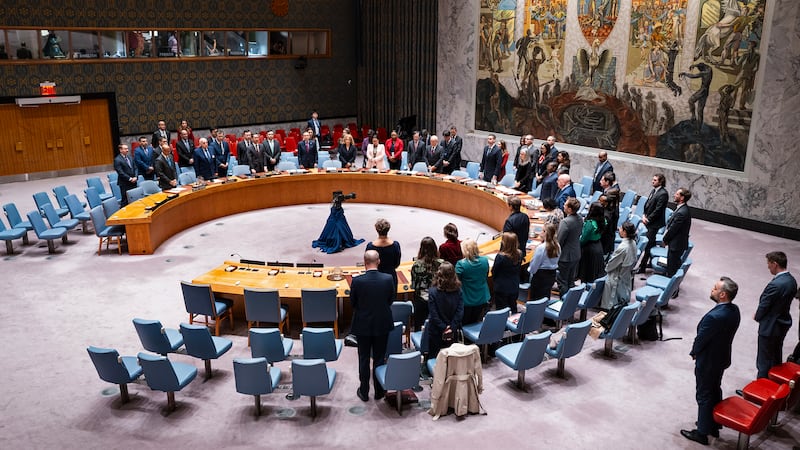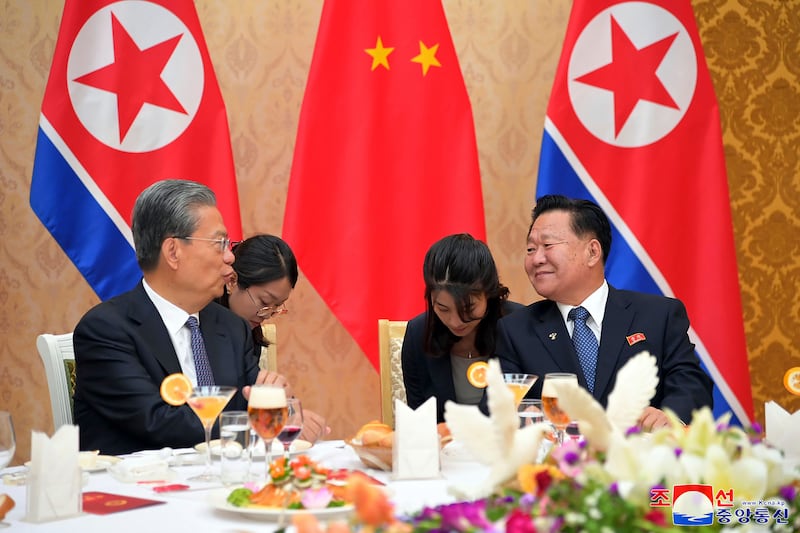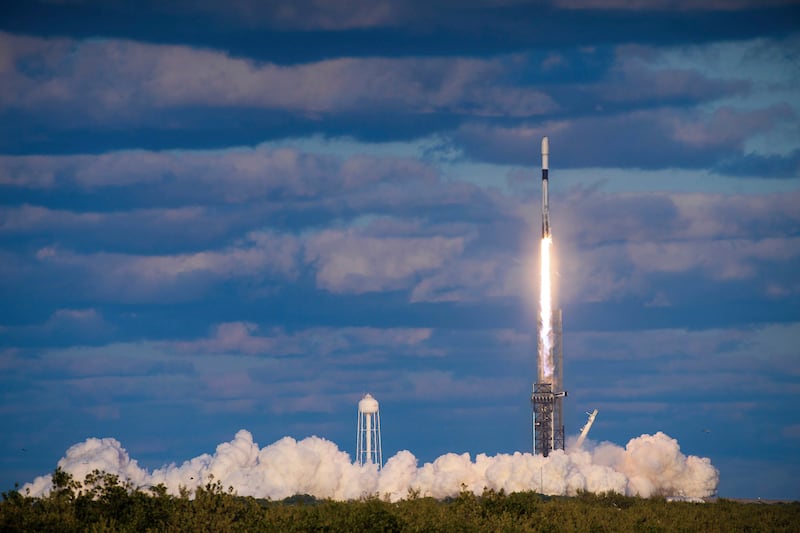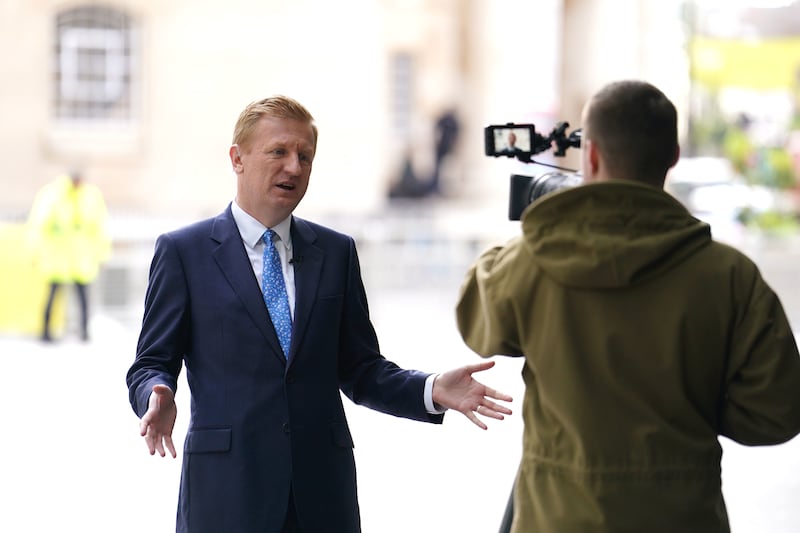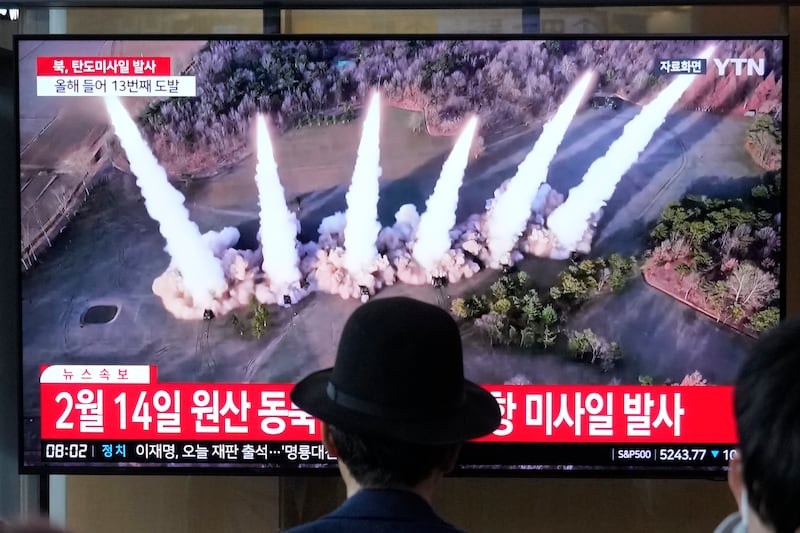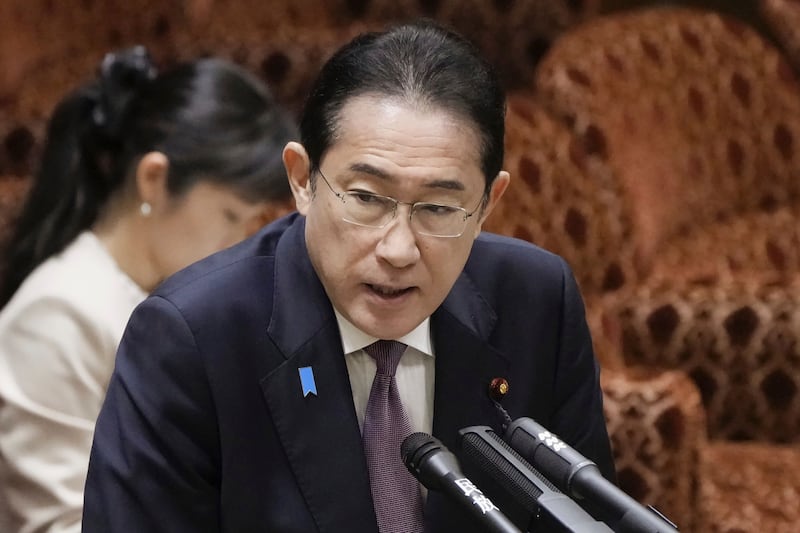North Korea has claimed a "perfect success" in its most powerful nuclear test so far, prompting US president Donald Trump to warn "we'll see" when asked if he would attack the country.
Mr Trump also suggested pressing China, the North's patron for many decades and a vital US trading partner, on the economic front, in the hope of persuading Beijing to exert leverage on its neighbour.
He tweeted that the US is considering "stopping all trade with any country doing business with North Korea".
The latest military provocation from the isolated communist country reinforces the danger facing America, Mr Trump said earlier in a series of tweets, adding that "talk of appeasement" is pointless.
"They only understand one thing," Mr Trump wrote, without elaboration, as he prepared to meet later with his national security team, which he said would include John Kelly, his chief of staff, as well as defence secretary Jim Mattis "and other military leaders".
Sunday's detonation by North Korea was the first nuclear test since Mr Trump took office in January.
After attending church near the White House, Mr Trump made his "we'll see" comment in response to a question from reporters.
The precise strength of the explosion, described by state-controlled media in North Korea as a hydrogen bomb, has yet to be determined.
South Korea's weather agency said the artificial earthquake caused by the explosion was five to six times stronger than tremors generated by the North's previous five such tests. The impact reportedly shook buildings in China and Russia.
US Secretary of State Rex Tillerson was calling counterparts in Asia, and Mr Trump's treasury secretary, Steven Mnuchin, said he was putting together proposed new sanctions for Mr Trump to consider that would seek to cut off trade with North Korea.
The action suggested in Mr Trump's trade tweet would be radical – the US imports about $40 billion (£31bn) in goods a month from China, North Korea's main commercial partner.
It was unclear what kind of penalties might make a difference. Lassina Zerbo, head of the UN test ban treaty organisation, said sanctions already imposed against North Korea are not working.
Mr Trump warned last month that the US military was "locked and loaded, should North Korea act unwisely" and that the US would unleash "fire and fury" on the North if it continued to threaten America.
The words followed threats from North Korea to launch ballistic missiles towards the US Pacific territory of Guam, intending to create "enveloping fire" near the military hub that is home to US bombers.
The North's latest test was carried out at 12.29pm local time at the Punggye-ri site where it has conducted past nuclear tests.
Officials in Seoul put the magnitude at 5.7; the US Geological Survey said it was a magnitude 6.3. The strongest artificial quake from previous tests was a magnitude 5.3.
"North Korea has conducted a major Nuclear Test. Their words and actions continue to be very hostile and dangerous to the United States," Mr Trump said in the first of a series of tweets.
He branded North Korea "a rogue nation which has become a great threat and embarrassment to China, which is trying to help but with little success".
Yet Mr Trump appeared to be more critical of South Korean president Moon Jae-in, who has attempted to reach out to the North.
"South Korea is finding, as I have told them, that their talk of appeasement with North Korea will not work, they only understand one thing!" Mr Trump said.
China's official Xinhua News Agency said President Xi Jinping and Russian leader Vladimir Putin, meeting on the sidelines of a Beijing-led economic summit, agreed "to adhere to the goal of the denuclearisation of the Korean Peninsula, have close communication and coordination and properly respond" to the test.
North Korea's state-run television broadcast a special bulletin to announce the test and said leader Kim Jong Un attended a meeting of the ruling party's presidium and signed the go-ahead order.
Earlier, the party's newspaper ran a front-page story showing photos of Kim examining what it said was a nuclear warhead being fitted onto the nose of an intercontinental ballistic missile.
Sunday's detonation builds on recent North Korean advances that include test launches in July of two ICBMs that are believed to be capable of reaching the mainland US The North says its missile development is part of a defensive effort to build a viable nuclear deterrent that can target US cities.
The North claimed the device it tested was a thermonuclear weapon – commonly called a hydrogen bomb. It said the underground test site did not leak radioactive materials.
